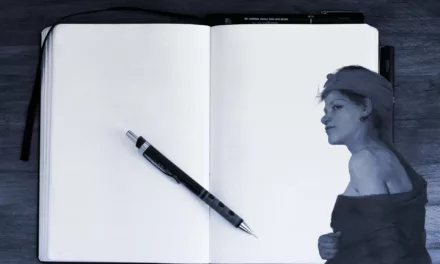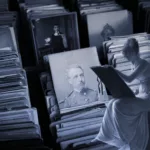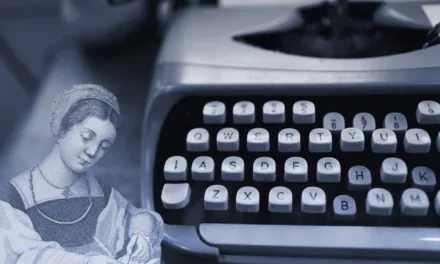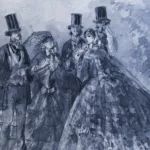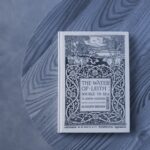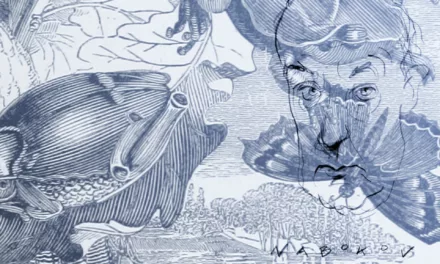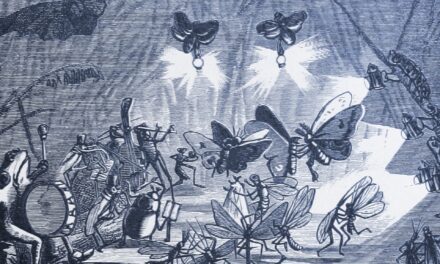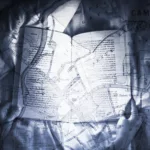
I Wrote a Novel in 24 Hours and This Is What I Learned
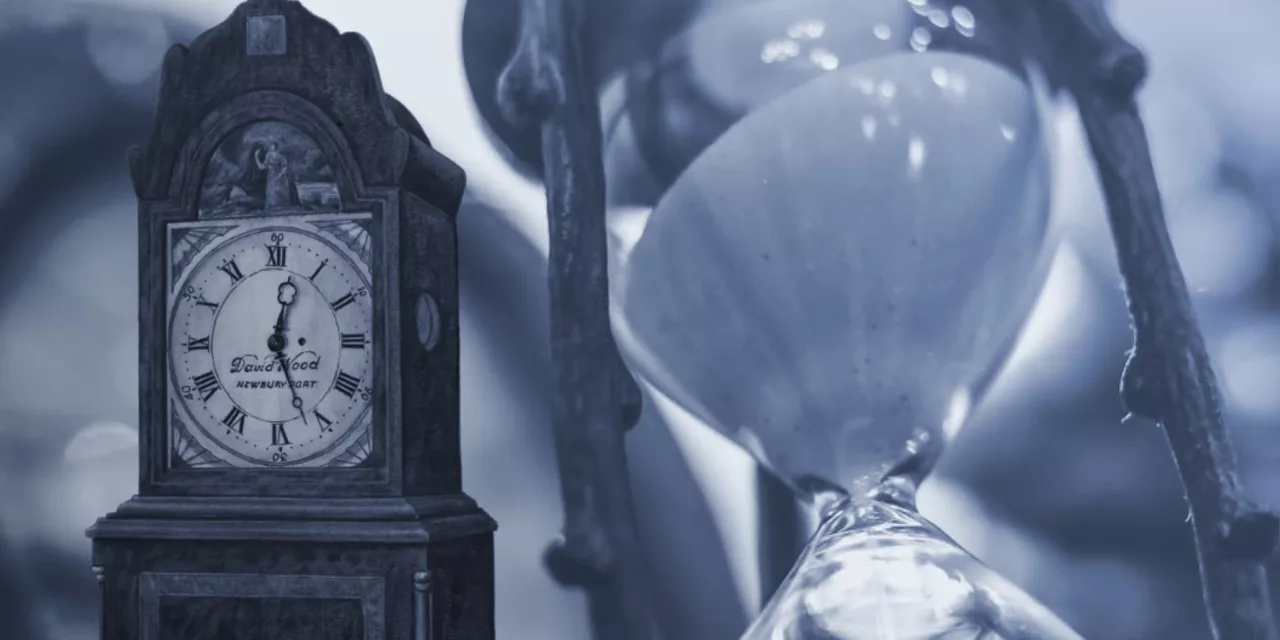
As some of you may have followed on Twitter, in the last week of June I participated in the 24 Hour Novel challenge. Writers from all over the world got together and attempted to write a novel of 50k words in a single 24-hour period. It was a test of endurance and stretched our creativity to the limit.
Despite being a working ghostwriter with lots of experience behind me, I was genuinely surprised by how much I learned about myself as a writer. There were a lot of assumptions I had that were disproven during the ordeal, and a lot of productivity techniques that were cemented as essential in my writing practice moving forward.
So, here’s what I learned!
Quality > Speed
To reach a goal of 50k words in 24 hours you have to write an average of 2084 words each hour. That’s a huge amount of output and creative strain to keep up for so long.
I never thought I’d struggle with the word count because I type quite fast. My average typing speed is 91 words per minute, so if I typed non-stop for a full hour, I should have been able to reach at least 5k words without breaking a sweat. But what I didn’t plan for was how much slower my output is when I have to think creatively! I’d always assumed that I could think as fast as I type, but nothing could have been further from the truth.
Looking at my per-hour stats, I averaged around 32 words per minute – less than half of my actual typing speed. In my first hours, I only managed an average of 1600 words, and there was no way this would ever bring me to the 50k mark.
So, I sped up.
I peaked with my word count around the 10-14 hour mark because I just pushed myself, averaging around 2400 words. It got the largest number of words down, but the least usable prose. I knew I had to make up time to reach 50k, and my brain was still marginally fresh enough to do it.
Earlier in the writing day I was committed to quality, but I’d lost steam on anything but word count by the mid-way mark. After 15 hours my brain was basically mush, and I wrote some of the biggest nonsense ever put to page.
She stepped in the wet thing that happens after rain, the leaves sticking to the soles of her shoes as she [wiggled? no stupid. Wran?] through the big place with the trees.
An actual sentence I wrote after being awake for 23 hours (the wet thing after rain is supposed to be a puddle but I couldn’t remember the word…and I also mispelled “ran”)
It’s literally unusable.
My brain would just wander off mid-sentence, and I was typing out of sheer force of will. It was like muscle motion with no thought, and almost no creative process involved. I fell back on tired tropes, clichés, and placeholders because I couldn’t think of anything interesting or insightful to say anymore.
When I kept up a comfortable pace instead of worrying about the number of words, I produced much better work. It’s definitely better to aim for quality, rather than quantity.

You need a plan
I’m not a strict planner. I’m a vague outliner at best.
I usually have a plot idea, write out a sketchy synopsis, put my work into a simple three-act structure, and away I go. I’m a dyed-in-the-wool plantser.
But for a huge undertaking like a novel in 24 hours, a plan becomes absolutely essential, not only for output but to keep your story focused if you have any hope of what you write ever being usable.
There’s very little time to think, so knowing what you need to write in advance definitely helps not only with assigning your time to certain tasks but also with directing your focus. If you take the time to prepare, and really break your work down into story beats and set scenes, it’s much easier to put your energy into each hour’s task.
Because of my lack of planning, I found myself floundering with where my story was going. The people who had planned their novels out in detail definitely got the most out of their writing time and had much more complete stories when they reached the finish line.
Breaks are important
If you’re trying to write over 2000 words each hour, breaks become a luxury you simply can’t afford. After a few hours, I tried to force myself to reach the word count at the 45-minute mark so I could have 15 minutes to stretch my legs and grab a drink. But it wasn’t enough, and my words suffered for it.
Not being able to take a break and clear your head saps the joy out of writing. I did the challenge because I thought it would be a cool experience, and while it was certainly a worthwhile one, I definitely wouldn’t describe it as always fun.
The longer I wrote, the more each word started to feel like a chore. After 14 hours at my desk, I just wanted to take a break, but I was dedicated to pushing through the full 24 hours.
Every word after 16 hours was like pulling teeth. I ate lunch at my desk and dinner at my desk. I occasionally emerged from my study to grab a coffee or water, but a proper break was just not something I had the time for.
It’s hard to be creative without a chance to reset and to do that, you have to take breaks. Never has the importance of working breaks into your writing routine become more apparent to me than now.

You can’t force creativity
Creativity is fickle, and sometimes you’re just not feeling it.
And if you’re not feeling it, there’s only so much you can force it.
In the morning, I felt good. I liked what I was writing, and I really enjoyed watching the story take shape in such a long writing session. It started rough, but as I got into a rhythm the story started to flow, and I felt like I was creating something worthwhile.
As the hours wore on, however, I lost that creative spark. I was writing because I had to, and no longer because I wanted to. Looking back over my manuscript, the words are there, but they lack life. There’s nothing special or interesting about them. They feel like the output of a first-year creative-writing student who is just trying to submit their homework, rather than write something unique or special.
That’s disappointing, but it also makes sense. I did my best work when I was feeling creative, and my worst work when I wasn’t. And just because I was forcing myself to write, didn’t mean that I could force myself to be creative.
In the wider scheme of things, if we only write when we feel creative, we’d probably get very little writing done. There is some level of force that is needed to get you to your desk to write sometimes. But without a looming deadline, it’s a bit easier to encourage your brain to be in a creative mindset. You can take some time to do tasks that inspire you, like create a mood board, put together a playlist, tidy your workspace, or even do some research. But without the ability to foster a creative mood, it’s almost impossible to force genuine creative output.
Accountability is Essential
Without the wonderful group of people on the 24 Hour Novel Discord server and the amazing support of all of you on Twitter, I don’t think I’d have made it through the whole challenge. It was tough, but having a bunch of strangers cheering me on, really helped.
When I work for a client, I often have to put in long hours. But that’s with a set goal and a guaranteed paycheck at the end of it. Self-accountability is easy when it’s work.
Writing for fun, enjoyment, or without a guaranteed payday is a different matter entirely.
When you write for your own pleasure then there’s nothing wrong with just penning words when the mood takes you. If that’s how you write, then it can be difficult to push through the barriers that stop you from reaching your targets. This is where accountability check-ins become an essential part of the writing process.
Accountability increases motivation. Even if the stakes are low, there’s still something in knowing that you’ll be disappointing people who are cheering you on to keep you on track.
I don’t think anyone would have blamed me if I’d thrown in the towel by the 22-hour mark (which I seriously considered doing a couple of times). But knowing I could check in, and there’d be someone on the other end to tell me I could push through made all the difference.

Set realistic targets
I used to struggle with NaNoWriMo — there’s a feeling of guilt and failure if you don’t manage to reach the mandated target. I love the changes they’ve made to allow you to set your own goals recently, which is exactly what I’ve done for Camp NaNo this year. It’s alleviated a lot of that pressure.
For this challenge, 50k was the goal, so anything less than that risked feeling like failure.
It wasn’t.
With my slow start, I revised my target to 30k, which I thought was reasonable given my pace and output. It was still a number I was happy with and could call an achievement.
When the 24 hours were up and I finished with 42,782 words, I’d far surpassed my revised target of 30k, even though I didn’t reach the 50k goal. Because I changed my target, my finish felt like a victory I could be proud of, rather than the failure it might have felt like had I simply tried chasing a goal I could never have reached.
Set yourself a realistic target for what you want to achieve and you’ll feel better when you reach success. Success is different for everyone, so don’t be afraid to determine what success looks like for you.
The silence gets lonely
When I write, I usually work in silence. I find ambient and background noise distracting, and if there’s anything with lyrics you can basically kiss any kind of productivity goodbye.
But I’d never written for such a long, single stretch before, and let me tell you, the silence becomes deafening. With nothing but the whir of my laptop fan and the clack of the keyboard, I started to get ear fatigue. For the first time in my life, I found myself craving another sound just to distract myself from the monotony.
What I’ve learned is that for any long writing stint, it’s good to have a playlist lined up that suits your writing mood. I tried a few different types of music (losing some essential writing time in the process) but kept getting distracted when it didn’t fit with the mood of what I was trying to write. I was writing a middle-grade novel about a haunted cottage in rural Wales, so synthwave, folk, or even classical didn’t quite fit my creative headspace.
Thankfully I had a friend who sent me a playlist that she’d curated for last year’s NaNoWriMo which fit my story perfectly, and it made a huge difference to my writing after that. Rather than distracting, I found it inspirational. It reinvigorated my creativity and gave me the boost I needed to push me over the finish line.
I have often used playlists as mood-setting for when I’m plotting or getting idea inspiration, but after this challenge, I think I’ll be integrating carefully selected playlists into more of my writing practice in future.
Summing up
Now that the challenge is over, it’s interesting to reflect on what I’ve learned. Anyone who asked me within a few days of finishing whether I’d do it again, I answered with a resounding “no”. But with a bit more time to reflect, I guess my answer is a less resounding, “maybe”.
Was it a good way to write a book? Absolutely not. But I wouldn’t give up the experience for anything. It taught me what I’m capable of, what my limits are, and under what circumstances I do my best work. All of this is valuable information that I can integrate into my future writing practice, even if the novel I wrote during the 24 Hour Novel challenge will never see the light of day.

